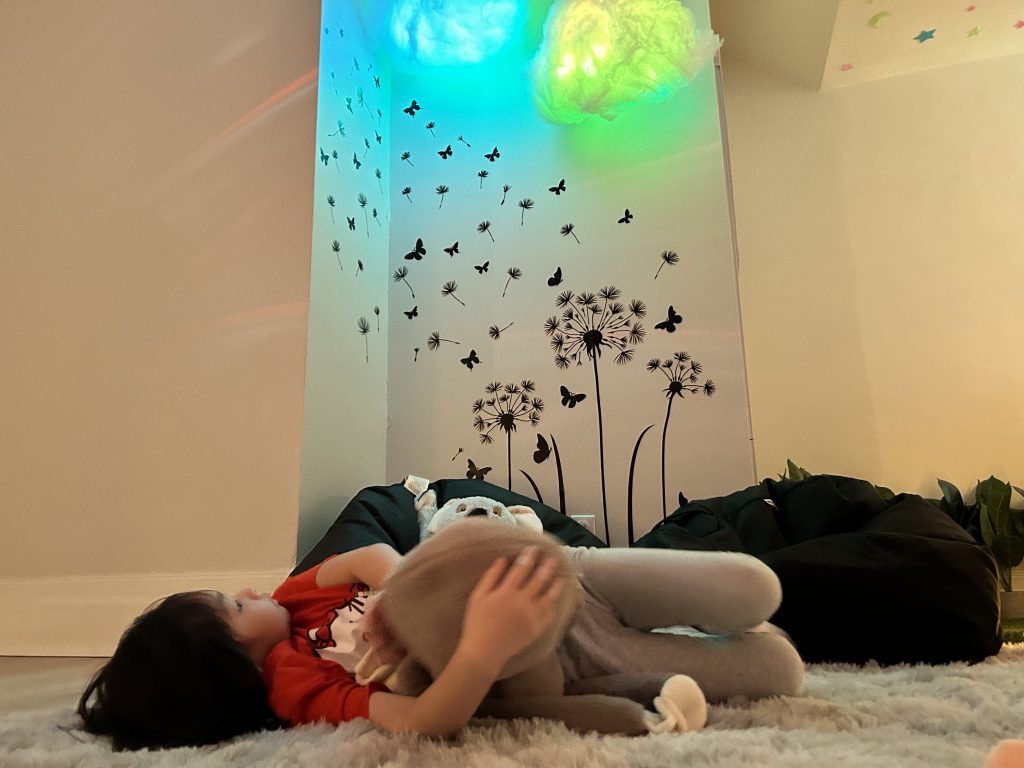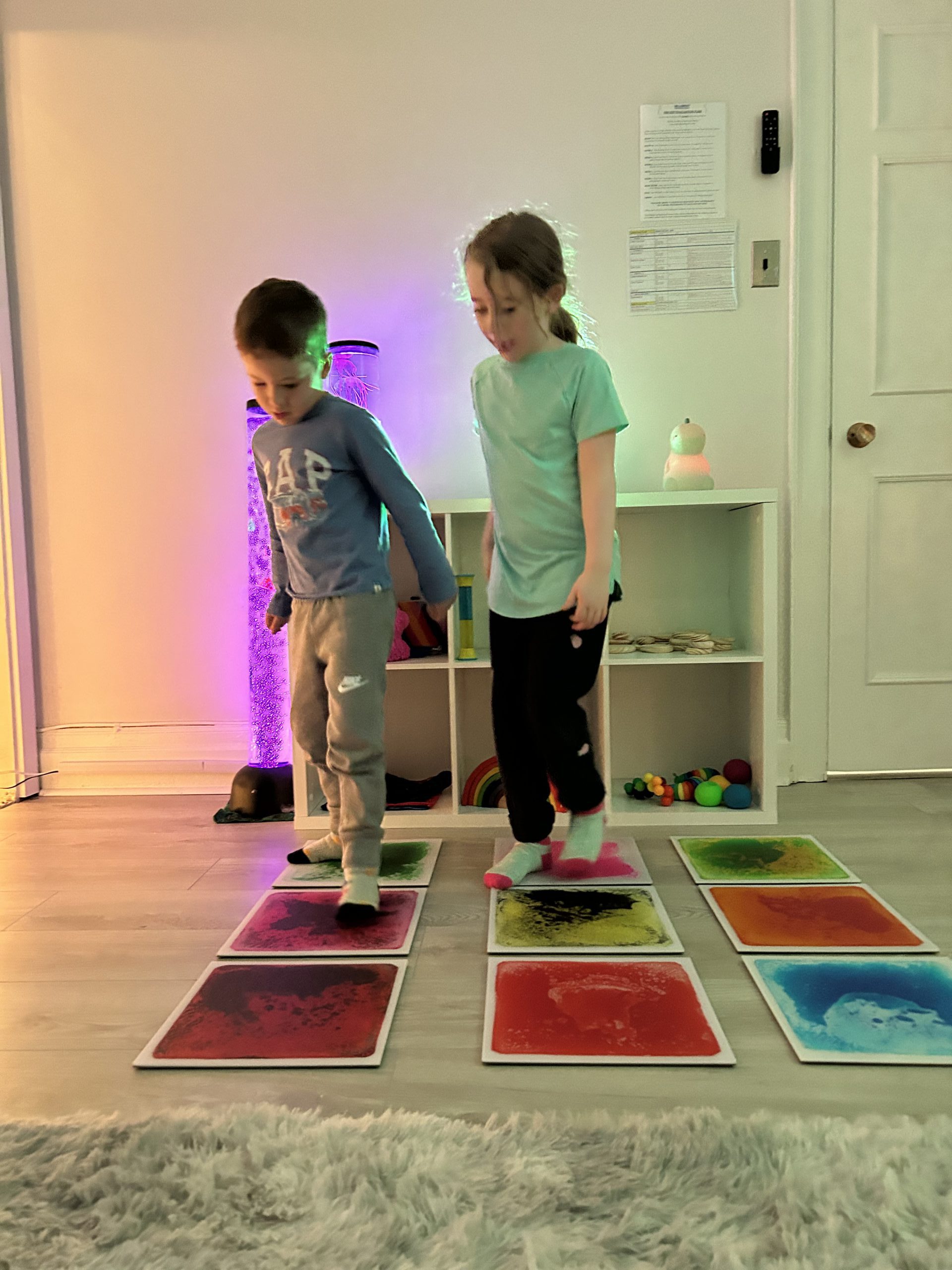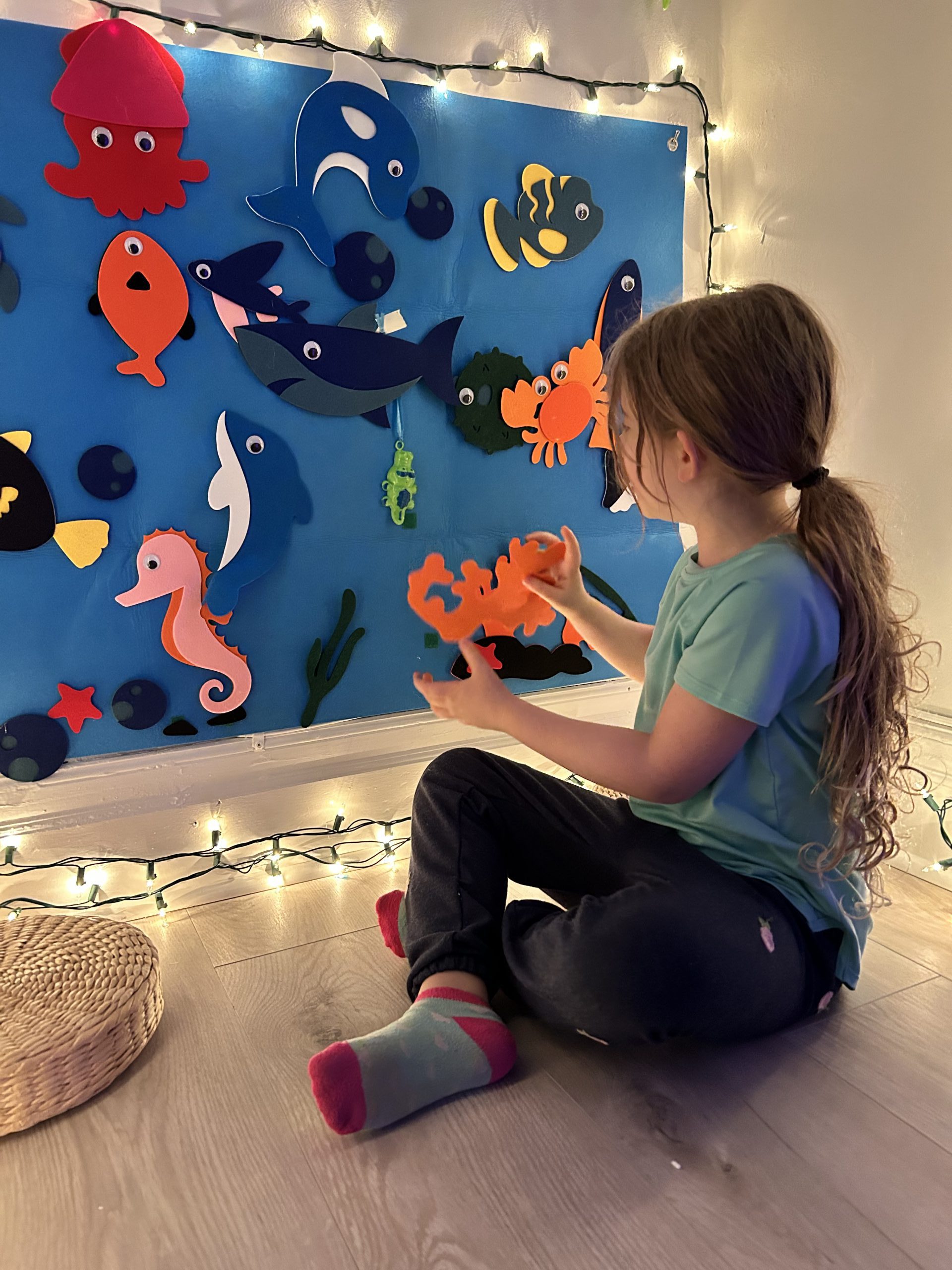What is a sensory room? A sensory room can play a crucial role in supporting early childhood development by providing a nurturing and stimulating environment that caters to a child’s sensory needs.

Here are several ways in which a sensory room supports children’s social, emotional, and cognitive development:
- Sensory Integration: Sensory rooms are designed to offer a variety of stimuli, including visual, auditory, tactile, olfactory, and proprioceptive experiences. These activities help children develop and refine their sensory processing skills, contributing to better coordination, balance, and overall sensory integration.
- Emotional Regulation: Sensory rooms often include calming elements such as soft lighting, soothing sounds, and comfortable seating. Exposure to these calming stimuli can assist children in regulating their emotions, managing stress, and developing self-soothing techniques.
- Cognitive Development: Engaging in sensory activities promotes cognitive development by encouraging exploration, problem-solving, and the development of spatial awareness. Children learn to make sense of the world around them through hands-on experiences, supporting cognitive growth.
- Social Skills: Sensory rooms can be designed to encourage social interaction and cooperative play. Shared sensory experiences foster communication, collaboration, and the development of social skills such as taking turns, sharing, and expressing emotions in a positive manner.
- Language Development: Exploring different sensory materials and activities provides opportunities for language development. Children can learn and use new vocabulary as they describe their sensory experiences, fostering language skills.
- Motor Skills: Sensory rooms often incorporate activities that promote both fine and gross motor skills. For example, children may engage in activities that involve manipulating objects, climbing, swinging, or balancing, contributing to the development of their motor coordination and strength.
- Attention and Concentration: The sensory-rich environment in a sensory room can enhance a child’s ability to focus and sustain attention. Activities that engage multiple senses help improve concentration, which is beneficial for future academic success.
- Self-Awareness and Regulation: Through exposure to various sensory stimuli, children learn to become more aware of their own sensory preferences and sensitivities. This self-awareness contributes to the development of self-regulation skills as children learn how to manage their responses to different sensory experiences.
- Inclusivity: Sensory rooms can be designed to accommodate diverse sensory needs, making them inclusive environments for all children, including those with sensory processing differences or special needs.


The Present Mind Sensory Room is the latest addition to the educational offerings at Hillcrest Progressive School. We are dedicated to fostering a supportive and caring environment for all students and their families by providing a nurturing environment and a cohesive community of educators and lifelong friends.
Present Mind is a holistic mental health private practice in Toronto and donated this room. For more information visit https://www.present-mind.ca

